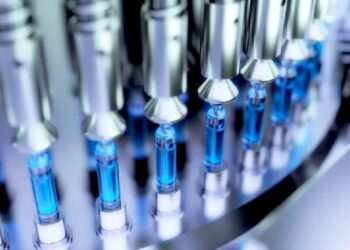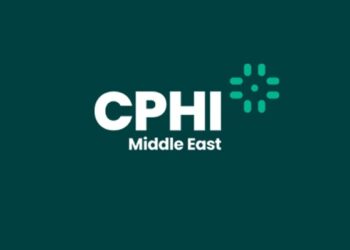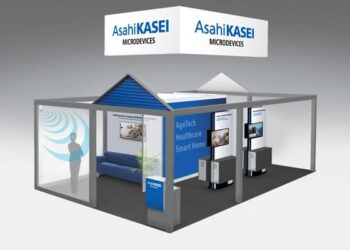Syntegon (formerly Bosch Packaging Technology), has entered a strategic partnershop with Bayer for the development of new continuous manufacturing processes for oral solid dosage (OSD) forms. The cooperation is based on the Xelum platform developed by the Syntegon subsidiary Hüttlin, which the partners intend to advance together and establish as a standard in the pharmaceutical industry. Its main advantage and a novelty in continuous pharmaceutical production is the previously unattained precise dosing of active ingredients. At the same time, fluid bed granulation provides granules with outstanding properties.
A cooperation with high future potential
Fluid bed granulation remains the most flexible technology for the production of solid oral drug formulations. It is well established and the ease of transfer from the currently predominant batch process to continuous production is of high value to pharmaceutical companies. Continuous manufacturing makes it possible to further increase quality assurance in production and make new drugs available to patients faster.
Uwe Harbauer, head of the business unit Pharma at Syntegon, confirms: “Together with Bayer, we will continue to develop our Xelum platform and tap its potential more quickly. This will enable us to align our technology even more closely with specific customer requirements. The goal is to realize a continuous line that covers all steps from powder to coated tablet.”
Xelum: a new approach to continuous manufacturing
While other continuous processes rely on screw granulation, Syntegon’s Xelum platform uses fluid bed granulation, which has been well established for decades. Since granulation and drying take place in the same process room, there is no need to transport wet granules. The system doses, mixes and granulates defined sub-quantities of the product, so-called X-Keys, which continuously run through the process chain and are removed from the system successively. The X-keys ensure the traceability of the ingredients, which is essential for pharmaceutical production, at all times. Xelum requires neither technology transfer nor scale-up. Product development and manufacturing are carried out according to the same principles and recipes.
The cooperation is based on the Xelum platform developed by Syntegon’s subsidiary Hüttlin, which both partners intend to advance together and establish as a standard for continuous production in the pharmaceutical industry.
Reproduction for press purposes free of charge with credit “Picture: Syntegon”
In addition to further developing the Xelum platform, Syntegon’s main goal is to fulfill the so-called “continuous promise”, as Uwe Harbauer says. “We want our systems to enable higher quality assurance at lower development costs. In combination with higher flexibility in batch sizes and technology, this gives us a very positive outlook for the continuous future.”
About Syntegon Technology
Syntegon Technology is a leading global process and packaging technology provider. Formerly the packaging division of the Bosch Group, the company, headquartered in Waiblingen (Germany), has been offering complete solutions for the pharmaceutical and food industries for over 50 years. About 6,000 employees at 30 locations in more than 15 countries generated a total revenue of 1.3 billion euros in 2020. The portfolio of intelligent and sustainable technologies includes stand-alone machines, as well as complete systems and services. Fields of application in the pharmaceutical industry are the production, processing, filling, inspection and packaging of liquid and solid pharmaceuticals (e.g. syringes and capsules). In the food industry, the portfolio includes process technology for confectionery as well as packaging solutions for dry foods (e.g. bars, bakery products and coffee), frozen foods and dairy products.



















